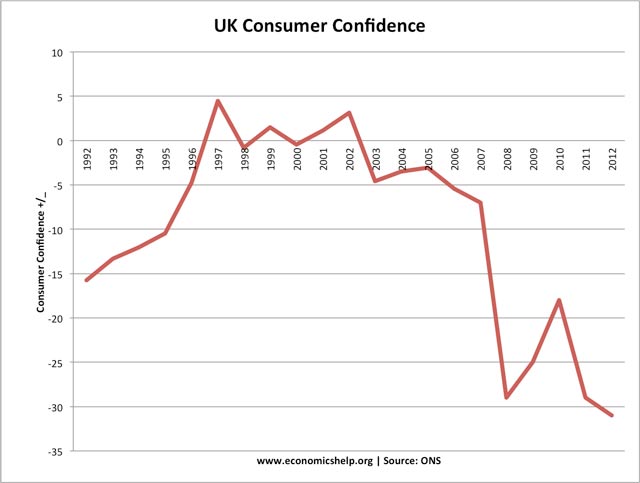The Prime Minister has got into a bit of pickle by trying to maintain the view that deficit reduction policies have not reduced economic growth, and in fact have had the opposite effect.
“They (are) absolutely clear that the deficit reduction plan is not responsible (for low growth); in fact, quite the opposite.” (link)
There is an economic logic to arguing that given the size of the UK budget deficit, the government need to consider policies to reduce it. Economists will disagree over the timing of deficit reduction. Some economists argue that the deficit shouldn’t be reduced whilst we are still in a recession. Others may argue, we have no luxury of waiting.
I favour the former view that recovery should come before austerity. But, I can at least understand the argument that we should cut the deficit now. However, what I can’t understand is the belief that if you cut public spending in the middle of a recession, that it will have not have some negative impact on economic growth – and in fact spending cuts will have the opposite effect in boosting economic growth. It is really a bizarre logic to hope that cutting spending at the present time will increase economic growth. With falling output, falling construction output there is no evidence of any ‘crowding in’ in the UK economy. There is however plenty of alternative evidence, e.g. IMF reports, that austerity has caused a negative multiplier effect and reduced growth.
I wonder if there are any economists who really believe that cutting government spending during a period of private sector deleveraging will actually increase economic growth? If David Cameron wrote an A-level essay on ‘discuss the impact of a fall in government spending’ – he would really struggle to get an E grade, and would probably fail.
Has the UK responded to news of public sector wage freezes and lower government spending by rejoicing at the planned reduction in the budget deficit and gone on a spending spree to celebrate?
The impact on confidence has been the opposite. Relatively minor spending cuts have created pessimistic expectations. There has been no confidence fairy miracle. As you would expect spending cuts in an already depressed economy have further reduced real GDP.
Austerity is not the only cause of double dip / triple dip recession. Definitely low growth in Europe, cost push inflation e.t.c have played a role. But, I wonder if there are any economists who would really believe spending cuts have not had a negative impact on real GDP?
You could argue there is no alternative but to pursue austerity ( which I don’t agree with). However, to believe austerity will not have a negative impact on economic growth is really difficult to maintain in the current climate. Even the ECB, the greatest proponents and champions of austerity, admit (reluctantly and with vague language) that austerity may ‘weigh on economic activity.
At the same time, necessary balance sheet adjustments in the public and private sectors, and the associated tight credit conditions, will continue to weigh on economic activity. (ECB Press release, March 7, 2013)
Recently, the IMF produced a report saying that austerity had a much bigger impact on reducing growth than they previously expected. Does anyone mind that they change their views given the evidence? No, that is what economists should do.
Mr Chote of OBR wrote:
“For the avoidance of doubt, I think it is important to point out that every forecast published by the OBR since the June 2010 Budget has incorporated the widely held assumption that tax increases and spending cuts reduce economic growth in the short term.”

